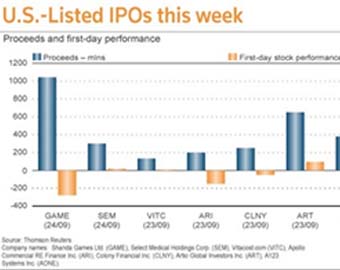Domestic listing requirements call for minimum distribution of a company's shares within the United States as well as minimum financial criteria. Distribution of shares can be attained through U.S. public offerings, acquisitions made in the U.S., or by ot
full story >>The firm going public hires an investment bank, or banks, to handle the IPO. It's possible for a company to sell shares on its own but, in reality, that never happens.Investment banks can work alone or together on one IPO, with one taking the lead. They u
Continue reading >>Public companies are required by the SEC, under the Securities 1934 Act, and Sarbanes-Oxley to file certain periodic reports to keep the investing public informed. This requirement will continue as long as the investor and asset tests are met. As noted pr
Continue reading >>The IPO is not the end of the story—it is only the beginning. Once listed, a company will be under far greater public scrutiny and will have a range of continuing obligations with which to comply
Continue reading >>During an IPO, a company will often declare a stock-split that does not become effective until just prior to the effectiveness of a registration statement. In many cases, the intent of the stock-split is to establish an offering price that is within a pre
Continue reading >>These are a measure of a registrant’s historic or future financial performance, financial position, or cash flows that exclude amounts or make adjustments that have the effect of excluding amounts that are included in comparable calculations presented i
Continue reading >>



